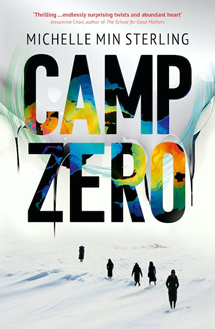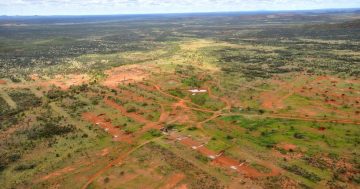Reviewed by Robert Goodman.
By Michelle Min Sterling, Hachette, $32.99.
 Michelle Min Sterling’s debut Camp Zero falls clearly into the growing climate fiction (cli-fi) canon. Set less than thirty years in the future it conceives of a world struggling with rising temperatures and intense weather events. Unsurprisingly, this is also a world that exacerbates the differences between rich and poor – with the wealthy being able to buffer themselves against the worst the climate can throw at them. And while it is a book in which it turns out humans cannot stop being humans, it is also a book with a strain of hope running through it, that perhaps there is another way.
Michelle Min Sterling’s debut Camp Zero falls clearly into the growing climate fiction (cli-fi) canon. Set less than thirty years in the future it conceives of a world struggling with rising temperatures and intense weather events. Unsurprisingly, this is also a world that exacerbates the differences between rich and poor – with the wealthy being able to buffer themselves against the worst the climate can throw at them. And while it is a book in which it turns out humans cannot stop being humans, it is also a book with a strain of hope running through it, that perhaps there is another way.
Camp Zero is set in 2049. The story opens with and mainly focusses on ‘Rose’, one of a group of escorts brought to a new development in the Canadian north. The development is designed as a cold weather refuge for wealthy Americans as the world warms. Rose and her fellow ‘Blooms’ have been brought to provide sexual and companionship services the wealthy investors. Rose herself has an ulterior mission that drives her to the bed of Meyer, the lead architect on the project. Grant also finds himself in the camp, trying to escape his ultra-wealthy family, he takes a job teaching English to the crew of workmen who are digging the foundations of the new colony. The third strand of the narrative revolves around a group of American women sent to work at a remote Northern base who call themselves “White Alice”. This aspect of the narrative only slowly reveals its connections to both Rose and Grant over the course of the story.
Camp Zero portrays a very believable future scenario. The whole world has not gone up in flames but life is becoming more difficult, particularly in the southern parts of the northern hemisphere. In America, the wealthy have fled from storm ravaged cities to an offshore Floating City which just reinforces class differences. Grant and Rose’s stories highlight the approach of the wealthy to those less fortunate. These differences are reflected in the camp. And while things are still getting worse, those with the resources are not looking for ways to solve the problem but just make themselves as comfortable as possible (while possibly making things worse) as the world burns around them. Although the White Alice storyline injects a hint of optimism it is a necessarily local approach, with its own problems embedded in it, rather than a global one.
Camp Zero is a tough, in some ways unsentimental, debut. Sterling extrapolates in a way that is both true and depressing. And in doing so she delivers a cautionary tale that may well soon not be all that fictional.
Over 900 more book reviews can be found on Pile by the Bed.











